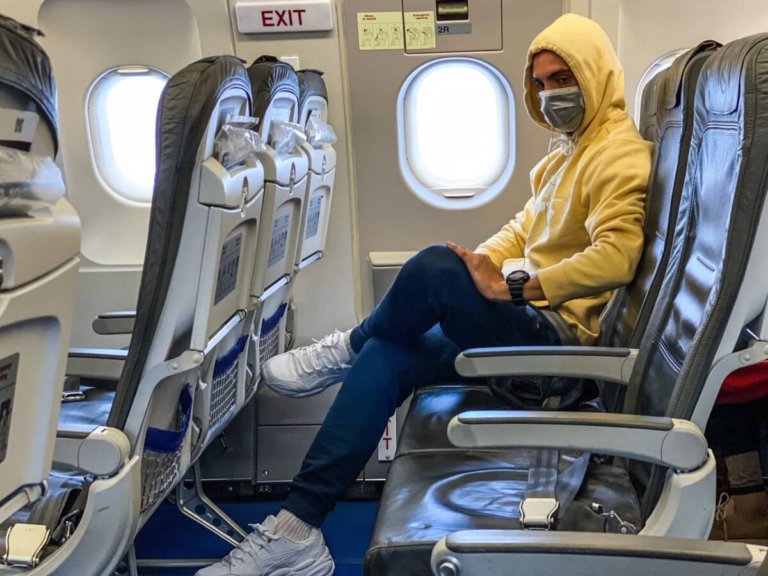
Coronavirus is dominating headlines, flooding social media feeds and prompting governments to impose a national or partial lockdown. No doubt, the pandemic is affecting numerous aspects of your life as an international student. One crucial question you’re probably asking, with many universities suspending classes or shifting online, is whether you can travel safely back home and be with your loved ones.
If there are family emergencies, that means you’ll probably have to jump on the next flight home with little notice during this global crisis too.
So, what do you do?
Today the government has updated its travel guidance with immediate effect.
We are now advising against all non-essential overseas travel.https://t.co/Zdm45PKyuU
— Boris Johnson (@BorisJohnson) March 17, 2020
While different countries will have different guidelines as to whether or not you can travel, many countries advise against travelling unless necessary.
But can you still travel safely – whether via bus, train or even plane – if you can’t avoid it?
Here are some collated – and more importantly, trustworthy – travel advice from the World Health Organization (WHO), Gov.uk and the Centers for Disease Control and Prevention (CDC) that you can take heed off:
Avoid travelling if you’re sick
We’re living in precarious times, so if you’re having symptoms such as fever, cough and difficulty breathing, avoid travelling to reduce your risk of spreading the illness to others.

Please wear a mask if you are showing symptoms! Source: Justin Tallis/AFP
Contact a healthcare provider for advice.
Check your insurance policy
Insurance is something you pay for with the hope of never needing to use it.
But if you have insurance for study interruptions, you might want to check with your insurer about the reimbursement you are eligible for and what the amount is. Don’t feel afraid to clarify anything ambiguous in your policy.
This might also be a good time to buy travel insurance to ensure you’re protected in the event of unforeseen circumstances.
Prepare for the unexpected
Carry more cash than necessary in the event there are unexpected delays.

Most governments have pledged bank services to continue uninterrupted so there’s no need to withdraw all your money in a panic. Having some emergency cash is good but not too much as handling them can be unhygienic. Source: Angelo Tzortzinis/AFP
You will also want to ensure that you also have enough medication if you happen to get stuck abroad longer than planned.
Avoid people who are sick
A key point to travel safely is to avoid close contact with those who are suffering from a fever and cough.
Whenever possible, practise social distancing, which refers to maintaining a two-metre (six-feet) distance between yourself and others, especially those displaying symptoms of virus.

Shoppers stand apart as social distancing measures, amid concerns of the COVID-19 coronavirus, while queueing outside a supermarket in Manila on March 17, 2020. Source: Maria Tan/AFP
You can also wear a face mask, ensuring that it covers your mouth and nose if you’re showing symptoms. Avoid touching the mask once it’s on.
Stop touching your face
There’s no point to following all the advice above on how to travel safely if you keep touching your eyes, nose, or mouth with unwashed hands. Avoid these and regularly wash your hands with soap and water for at least 20 seconds.
If that’s not available, use an alcohol-based hand sanitiser that contains at least 60 percent alcohol.
Keep abreast of coronavirus measures for your destination
With guidelines on coronavirus measures unfolding so quickly, international students should make it a point to check the travel advice of their destination regularly.

The wefies will have to be postponed until further notice. Source: Rachel Murray/AFP
Create a Google alert for the latest news on the topic or follow key ministries or politicians on Twitter (or other social media platforms) to stay abreast of the news as they develop.
This allows you to take the necessary precautions when travelling.
Comply with local authorities
Upon your arrival at your destination, be prepared to follow the advice of local authorities, which may include temperature checks and filling out health questionnaires. You may also be required to undergo self-isolation for 14 days to halt the spread of the virus.
These are standard procedures to travel safely during these unprecedented times. Be responsible and adhere to these requirements accordingly.
Liked this? Then you’ll love…
3 reasons to choose upstate New York as a study abroad destination
Universities shutdown: What are the online learning tools students need to know?







